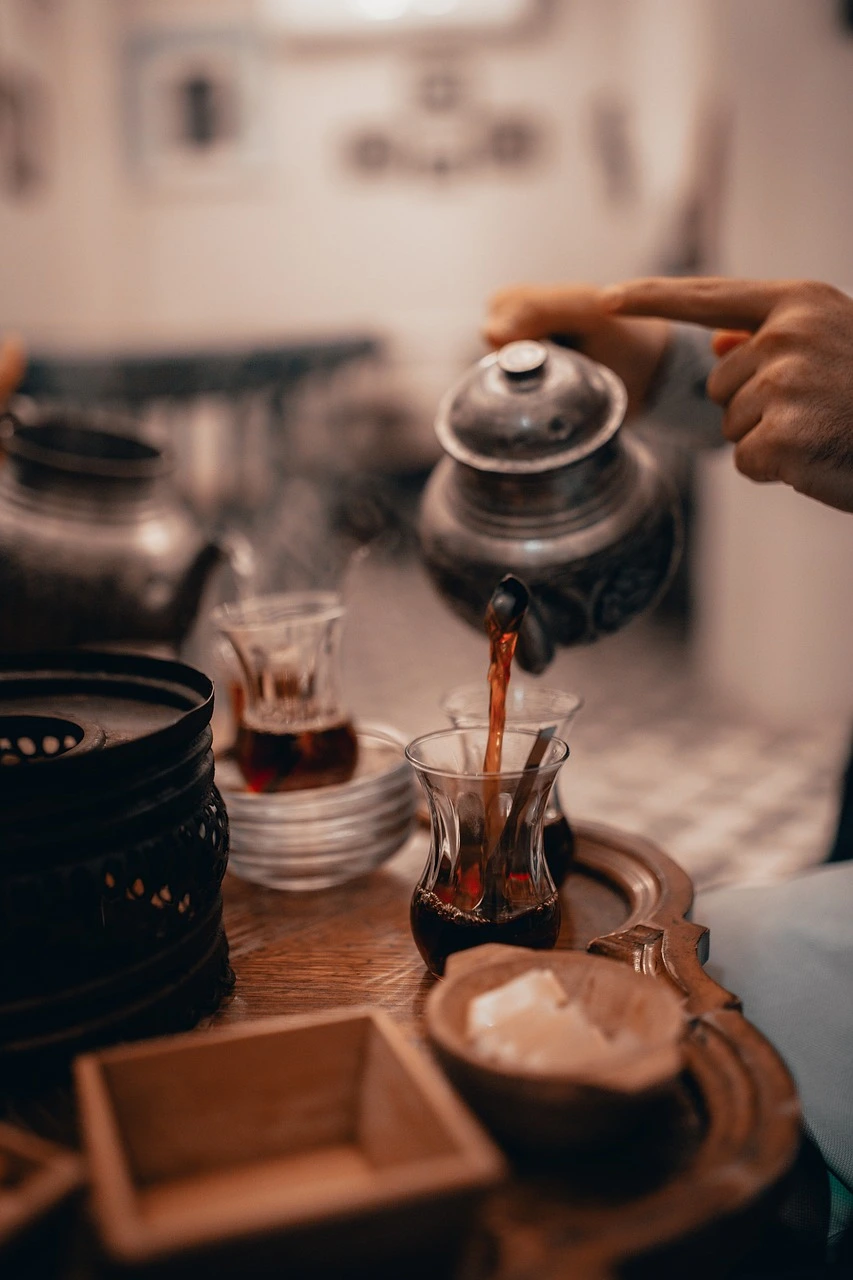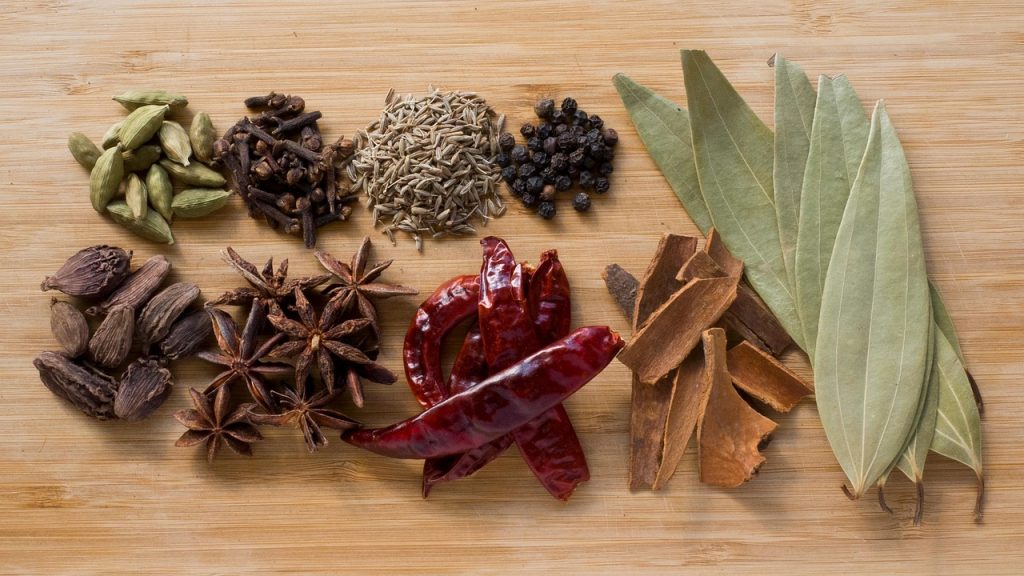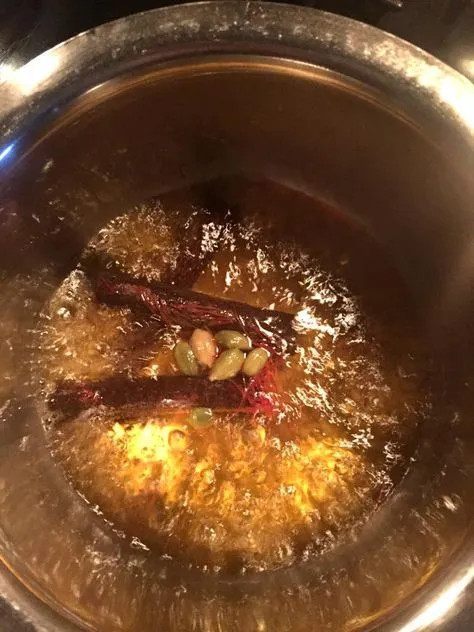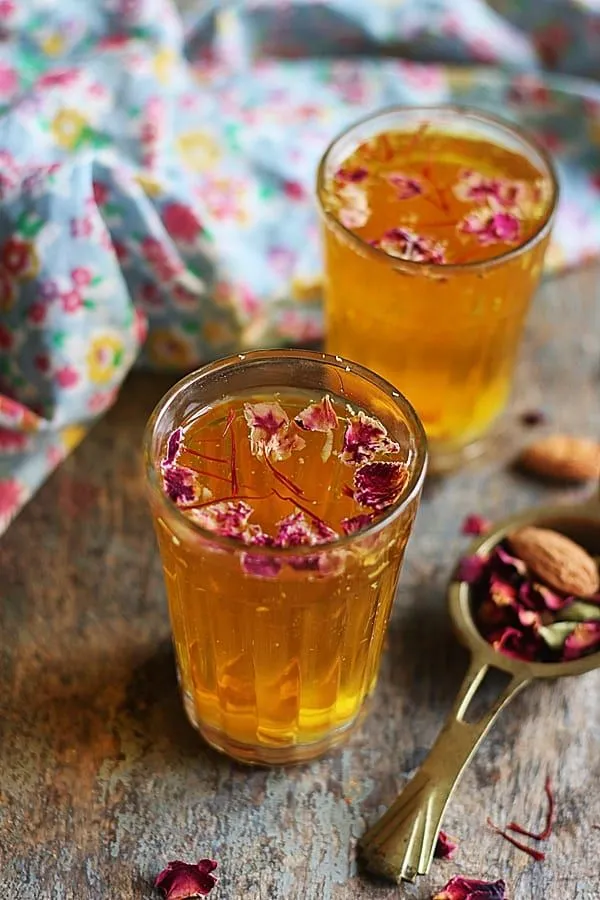kahwa, which is nothing but a traditional green tea, is not simply a beverage; it is a cultural, climatic and hospitable reflection of Kashmir. Sipped from elaborate engraved copper cups, kahwa provides warmth to a cold morning and a touch of grace to every gathering found in the valley. Whether you’re walking through a snow-laced meadow or relaxing after a hearty wazwaan, a cup of kahwa completes the experience.

Let’s explore the legacy, preparation, health benefits, and cultural significance of this aromatic drink that continues to charm both locals and visitors alike.
The Legacy of kahwa in Kashmiri Culture
kahwa has been a staple in Kashmiri homes for centuries. While there are differing opinions on its birthright, kahwa was most likely brought from Central Asia via its ancient home, the Silk Route. In Kashmir, kahwa took on the meaning of comfort, warmth, wellness, and welcome. kahwa becomes a naturally served drink to guests after festive feasts and in long winters to keep the body warm and hearts lighter.
kahwa is prepared in a traditional brass kettle (known as a samovar); kahwa embodies Kashmiri hospitality at its finest.
What Goes Into a Cup of Kashmiri Kahwa?

Authentic Kashmiri kahwa is a blend of green tea leaves brewed with a medley of spices and garnishes. The most common ingredients include
- Green tea leaves—the base of the brew.
- Cardamom and cinnamon—for warmth and aroma.
- Cloves—add depth and spiciness.
- Saffron strands—for a golden color and fragrance.
- Almond slivers—for a nutty finish.
Some families add crushed walnuts, apricots, or rose petals for a richer twist. Served hot in shallow cups, often with a topping of saffron, kahwa is a drink that soothes from within.
How to Make Traditional Kashmiri Kahwa at Home
Making kahwa is an experience in itself. Here’s a simple recipe to try at home:
Ingredients:
- 2 cups of water
- 1 tsp green tea leaves
- 2–3 crushed cardamom pods
- 1 small stick of cinnamon
- 2 cloves
- A few strands of saffron
- 1 tsp honey or sugar (optional)
- Slivered almonds for garnish.
Method:

- Boil water with cardamom, cinnamon, and cloves for five minutes.
- Add saffron and green tea leaves; let it steep (don’t boil it further).
- Strain into cups and garnish with almonds.
- Sweeten as desired. Enjoy it warm.
Serve it in a brass or copper cup to enhance authenticity, and enjoy each sip.
Health Benefits of Kahwa
There are many health benefits to enjoying kahwa, but even more reasons to make it a daily habit.
Natural Detox
The green tea and spices together cleanse the body. kahwa rids the body of unwanted toxic buildup and improves digestion.
Boosts Metabolism & Aids Weight Loss
Cinnamon, green tea, and cardamom speed up metabolism and increase calorie burning. kahwa is often consumed by people on weight management diet programs.
Relieves Stress & Uplifts Mood
Many people use saffron in Ayurvedic medicine to help reduce anxiety and trigger relaxation. Something as simple as a warm cup of kahwa after a long day can help alleviate tension and improve your mind/body disposition.
Improves Immunity
Ingredients in kahwa, like cloves and cinnamon, contain antifungal, antimicrobial, and anti-inflammatory properties that enhance the defense system of your body, fostering strength and immunity.
Supports heart health.
Almonds in kahwa are rich in healthy fats that reduce cholesterol and support heart function.
Good for oral and digestive health.
Cardamom and cloves aid digestion and freshen breath. They also help relieve bloating and nausea.
Enhances Skin and Eyesight
The antioxidants in saffron, green tea, and almonds contribute to clearer skin and improved eyesight.
When is kahwa served in Kashmiri culture?
Kehwa is more than a daily drink; it’s a reflection of Kashmir’s traditions, warmth, and way of life. Here’s when it’s typically served:
During Winter Mornings and Evenings
The cold climate of Kashmir makes kehwa a favorite winter drink. Its warming spices and saffron help keep the body warm and the soul relaxed, especially when snowflakes fall outside.
After Wazwaan
No Wazwaan—a grand multi-course Kashmiri feast—is complete without a cup of kehwa. It acts as a digestive and is a respectful way to close such a royal meal.
Welcoming Guests
Serving kehwa is a cherished symbol of Kashmiri hospitality. Whether it’s a close friend, a distant relative, or a first-time visitor, kehwa is offered with warmth and sincerity. The aroma of cardamom and saffron sets the tone for conversations and comfort. It’s not just about tea—it’s about making someone feel at home.
Festivals and Celebrations
Kehwa is served during joyous moments like Eid, weddings, or family reunions. It’s also offered during times of sorrow, symbolizing peace, healing, and support. It binds people together in moments of both happiness and reflection.
During Illness Recovery
Thanks to its natural healing ingredients—like saffron, cinnamon, and cloves—kehwa is often recommended when someone is feeling under the weather. It soothes sore throats, relieves congestion, and gently boosts energy during recovery.
Evening Chai Sessions
Instead of regular milk tea, many Kashmiris prefer kehwa in the evenings—especially when gathered around a kangri (traditional fire pot) or a bukhaari (wood stove). It’s sipped slowly during heartfelt chats, while watching the snowfall, or while reading poetry. It turns an ordinary moment into something peaceful and memorable. Often, almonds or saffron threads float in the cup, making it both a treat for the eyes and a comfort for the heart.
Why Kahwa is a Must-try for Every Traveler.
When in Kashmir, make sure to have some kahwa during the daytime at a roadside dhaba or while taking a leisurely shikara ride on Dal Lake. You might even find some cafes with gourmet versions, like rose kahwa, saffron-almond kahwa, and even kahwa ice cream!
Kashmir doesn’t disappoint, whether it’s for the snow or saffron fields; kahwa combined with local seasonal delicacies is the ticket you beg for!
Embrace the spirit of Kashmir with kahwa.

Kahwa is more than a customary drink; kahwa is the essence of Kashmir’s beauty, warmth, and ancient practices; a single cup contains a thousand stories about the people and spirit of the valley and their love for guests.
Ready to discover more cultural gems of Kashmir? Explore our other blogs or plan your soulful escape with Kashmir Whispers today.

Leave a Reply